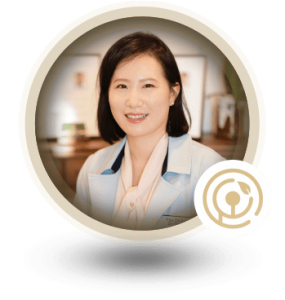Introduction:
The menopausal journey can bring about a myriad of changes, and for many women, hot flushes stand out as a common and often challenging symptom. While conventional treatments exist, an increasing number of individuals are turning to holistic approaches such as Chinese Herbal Medicine for a natural and personalised solution. In this blog, we’ll explore the ancient wisdom of Chinese Herbal Medicine and how it holds the potential to provide relief from menopausal hot flushes.
Understanding Menopausal Hot Flushes:
Hot flushes, characterised by sudden waves of heat and sweating, are a hallmark symptom of menopause. These fluctuations in body temperature can be not only uncomfortable but also disrupt daily life. Conventional treatments often include hormone therapy, lifestyle changes, and medications. Chinese Herbal Medicine offers an alternative path, addressing the root causes of hot flushes through a holistic and personalised approach.
The Essence of Chinese Herbal Medicine:
Chinese Herbal Medicine, a fundamental aspect of Traditional Chinese Medicine (TCM), has been refined over thousands of years. It involves the use of carefully selected herbs in unique combinations to restore balance within the body. In the context of menopausal hot flushes, TCM considers the balance of Yin and Yang energies, as well as the flow of Qi, or life force.
Customised Herbal Formulas:
One of the strengths of Chinese Herbal Medicine lies in its individualised approach. Practitioners assess each woman’s unique constitution, symptoms, and overall pattern of disharmony to create a personalised herbal formula. By tailoring the treatment to address the specific imbalances contributing to hot flushes, Chinese Herbal Medicine aims to provide targeted and effective relief.
Key Herbs for Menopausal Hot Flushes:
Several herbs play a pivotal role in addressing menopausal hot flushes in Chinese Herbal Medicine. Dong Quai (Dang Gui) is known for its ability to nourish Yin and regulate hormonal balance. Ginseng (Ren Shen) may help enhance energy levels and resilience. Red Clover (Trifolium pratense) is another herb with estrogenic properties that is often included in formulations to support hormonal equilibrium.
Balancing Yin and Yang:
Chinese Herbal Medicine views menopausal hot flushes as an imbalance between Yin and Yang energies. Yin, representing the cooling and nourishing aspects of the body, may become deficient during menopause, leading to heat and hot flushes. Herbal formulations aim to replenish Yin, restore balance, and ease the intensity and frequency of hot flushes.
Patient Experiences:
Many women navigating menopausal hot flushes have reported positive outcomes with Chinese Herbal Medicine. Reduced intensity and frequency of hot flushes, improved sleep, and an overall sense of well-being are commonly cited benefits. As awareness of this holistic approach grows, more women are exploring Chinese Herbal Medicine as a complementary option for managing menopausal symptoms.
Conclusion:
Menopausal hot flushes can be a challenging aspect of a woman’s journey, and finding effective, natural solutions is crucial for quality of life. Chinese Herbal Medicine, with its centuries-old wisdom and personalised approach, offers a unique perspective on managing this common menopausal symptom. As more women seek holistic approaches to health, the potential of Chinese Herbal Medicine to cool the flames of hot flushes stands as a promising avenue for those looking to embrace this transformative stage of life with comfort and balance.






